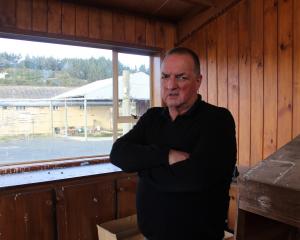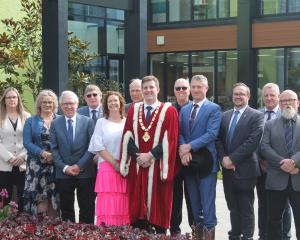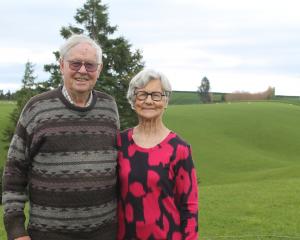A couple of heavy hitters have come out against a planned gold mine in Waikaka but some locals appear to be backing the venture.
Waikaka Gold Mines Ltd is seeking consent from the Gore District Council and Environment Southland to operate a mine near Waikaka, about 20km north of Gore.
The company has also applied for the mine to be approved under the Fast-track Approvals Bill.
The site was previously mined in the early 1900s and an operator also mined to its south briefly in 2001. The mine is said to be commercially feasible.
The project’s backers were looking to mine 95ha of land over eight years, at depths of 20m-40m below ground. Production was estimated at 6000 ounces of gold per year.
Four sections of the Waikaka Stream and Shepherds Creek would be diverted for a year, before being returned to their current alignment.
Nearly 30 submissions have been received with a mixture of support and opposition.
The Department of Conservation (Doc) opposed the proposal, it had issues with the impact of the gold mine on surface water, groundwater quality, freshwater species, habitat and fish passage.
Doc southern South Island operations manager John McCarroll said in his submission, there was particular concern around the impact of sediment mobilised during these extensive works and the presence of potentially acid forming materials known to be present at site.
"Excess sediment can infill and alter habitats, — including spawning, feeding and refuge habitats — enable the establishment of nuisance weeds, create anoxic conditions, and smother the feeding and gill structures of invertebrates and fish.
"This could result in reduced freshwater biodiversity and ecosystem health," he said in his submission.
The applicant proposed to provide an erosion and sediment control plan after consent was granted, but Mr McCarroll said it was important to have details of the plan before any hearing.
Goldmine activity was proposed to be within a significant Southland floodplain which raised the risk to conservation and fish during floods.
Flood waters could pass through the site and move untreated waters into other areas, resulting in contamination. Doc called for more information before any hearing.
Hokonui Rūnanga also opposed the application.
It said in its submission it had been engaging with the mining company since early last year.
The Rūnanga said Waikaka Gold Mines Limited indicated their preference was to engage and consult with stakeholders prior to the application being lodged.
The Rūnanga opposed the mine proposal as it did not align with the cultural significance of the Waikaka Stream and its surrounding environment. It did not address the potential adverse effects on mana whenua of significant land-use changes to an area of cultural importance and has long-term adverse impacts on cultural values, such as those on taonga species.
Activities which modify the Waikaka Stream from its natural state, degrade the ecological health of the waterway and its ability to provide habitat for taonga mahinga kai species, or detract from the naturalness of the area, should be discouraged.
Some submitters did support the proposal.
Paul Becker said he knew the personnel who ran Waikaka Gold Mines Ltd, and knew the areas that they had mined previously. Those mines were run with exemplary professionalism, with the land returned to a state equal to if not better than before the mining, he said.
The council had written to the applicant seeking more information.












